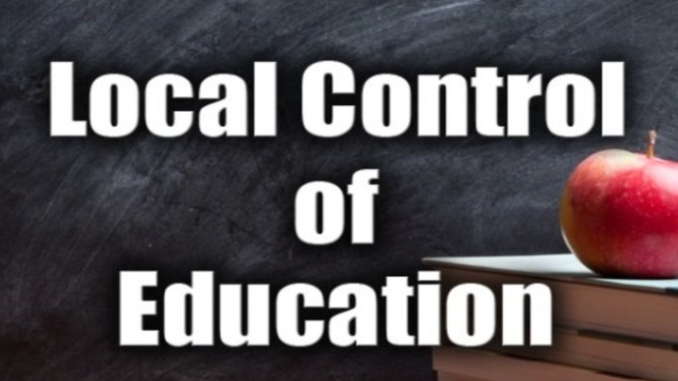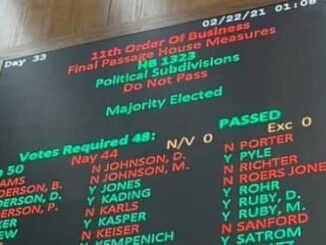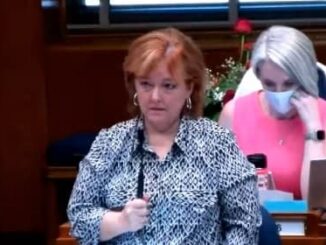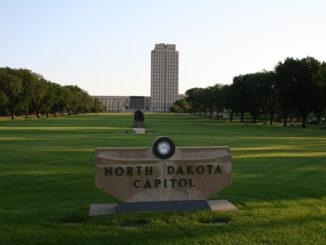
Local control of education in North Dakota is a myth. There’s simply no other way to put it. And that was once again reaffirmed today when the House Education Committee voted 12-2 Do Not Pass on House Bill 1228.
Last Saturday we published an article explaining that the bill proposed a level of local control that would be nothing short of historic for our state. And we also suggested that the bill itself would be a test for the Republican-led State Legislature in seeing just how serious they are when they say they support local control.
After publishing Saturday’s article, there were constitutional issues discovered within the bill that would need to be resolved through amendment in committee. Those issues stem from two places. The first is Article VIII, Section 5 of the North Dakota State Constitution:
“All colleges, universities, and other educational institutions, for the support of which lands have been granted to this state, or which are supported by a public tax, shall remain under the absolute and exclusive control of the state. No money raised for the support of the public schools of the state shall be appropriated to or used for the support of any sectarian school.” (Emphasis Added)
The second is found in Section 1 of HB 1228, where it says:
“Notwithstanding any other provision of law and subject to subsection 2, a school district may exercise sole control over…” (Emphasis Added)
And then the bill goes on to list the specifics of what a school district could take “sole control” of.
As you can imagine, it can’t be both ways. Something has to give— and short of a constitutional amendment, it obviously isn’t going to be the State Constitution. Once this was realized, steps were taken by the primary sponsor, Rep. Jeff Hoverson (R – District 3) to make the determination of how to proceed with the bill through proposal of amendments.
With his amendments in hand, Hoverson made his way to the House Education Committee hearing this morning to make his case for passage of the bill. And as expected, opposition lined up after him in an effort to persuade the committee to give it a Do Not Pass. Representatives from North Dakota Council of Educational Leaders (NDCEL), North Dakota School Boards Association (NDSBA), North Dakota Education and Standards Practices Board (NDESPB), Family Voices of North Dakota, and North Dakota United (NDU) all opposed the bill. The Department of Public Instruction (DPI) was technically neutral, but their testimony was somewhat negative.
The saddest part in all of it isn’t the opposition testimony that Hoverson faced. That was to be expected. But the committee acted without even attempting to make the amendments to the bill. As reported to The Minuteman, Rep. Mary Johnson (R – District 45) quickly moved that the committee issue the Do Not Pass and send the bill to the floor as written. In reality, it’s a tactic utilized in hopes of killing the bill on the floor of the House.
And Hoverson’s amendments weren’t unreasonable. In a nutshell — and as a matter of integrity — Hoverson wanted to resolve what might be interpreted as constitutional issues with the bill. So, instead of districts stripping control of education from the state through a vote of the school board or special election of those in the district, he proposed that districts ultimately seek approval of the state for those things in the bill they’d like to have more control or flexibility over. Things like course content standards, instructional time, assessments, attendance, graduation requirements, etc. But not even that was good enough.
The perplexing thing about how this bill was received is that just last legislative session Senate Bill 2186 came out of the House Education Committee with a 13-1 Do Pass. That was the “Innovative Education Program” touted by DPI Superintendent Kirsten Baesler. In reality it could be argued that HB 1228 is an expansion of the principles behind that bill, but instead of expanding the authority of the DPI Superintendent, it would provide greater flexibility to school districts. But apparently 12 members of the House Education Committee aren’t interested in that idea.
I can’t help but wonder what it is that these state lawmakers are so scared of? Do they honestly believe that the best people to make these decisions for school districts live and work in Bismarck? Apparently so. Otherwise, why would they choose big government lobbyists and bureaucrats over those closest to the needs of the students?
So, where does the bill go from here? It will go to the House floor for debate and a vote. And while things look grim, I still think the debate is worth having. Lawmakers need to be put on the spot about why they don’t support local control. The committee needs to be exposed for making absolutely no attempt to make amendments to the bill.
If the House had any guts, they’d reject the recommendation of the committee, pass the bill, and ask that the amendments — that should have been made in the first place — be added on the Senate side. But regardless of what they do, we have an even bigger issue at hand— a State Constitution that favors state control over local control. And lawmakers who apparently do the same. That’s a serious problem.
Sources:
- https://www.legis.nd.gov/constit/a08.pdf
- https://theminutemanblog.com/2019/01/12/education-bill-to-test-how-much-nd-legislature-believes-in-local-control/
- https://www.legis.nd.gov/assembly/65-2017/bill-actions/ba2186.html





